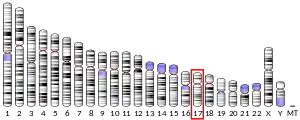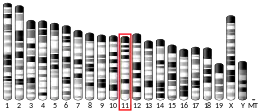| SGSM2 | |||||||||||||||||||||||||||||||||||||||||||||||||||
|---|---|---|---|---|---|---|---|---|---|---|---|---|---|---|---|---|---|---|---|---|---|---|---|---|---|---|---|---|---|---|---|---|---|---|---|---|---|---|---|---|---|---|---|---|---|---|---|---|---|---|---|
| Identifiers | |||||||||||||||||||||||||||||||||||||||||||||||||||
| Aliases | SGSM2, RUTBC1, small G protein signaling modulator 2 | ||||||||||||||||||||||||||||||||||||||||||||||||||
| External IDs | OMIM: 611418 MGI: 2144695 HomoloGene: 14780 GeneCards: SGSM2 | ||||||||||||||||||||||||||||||||||||||||||||||||||
| |||||||||||||||||||||||||||||||||||||||||||||||||||
| |||||||||||||||||||||||||||||||||||||||||||||||||||
| |||||||||||||||||||||||||||||||||||||||||||||||||||
| |||||||||||||||||||||||||||||||||||||||||||||||||||
| |||||||||||||||||||||||||||||||||||||||||||||||||||
| Wikidata | |||||||||||||||||||||||||||||||||||||||||||||||||||
| |||||||||||||||||||||||||||||||||||||||||||||||||||
Small G protein signaling modulator 2 is a protein that in humans is encoded by the SGSM2 gene.[5][6]
Clinical relevance
In a recent genome-wide association study, this gene has been associated with fasting glucose traits, type 2 diabetes and obesity.[7]
References
- 1 2 3 GRCh38: Ensembl release 89: ENSG00000141258 - Ensembl, May 2017
- 1 2 3 GRCm38: Ensembl release 89: ENSMUSG00000038351 - Ensembl, May 2017
- ↑ "Human PubMed Reference:". National Center for Biotechnology Information, U.S. National Library of Medicine.
- ↑ "Mouse PubMed Reference:". National Center for Biotechnology Information, U.S. National Library of Medicine.
- ↑ Yang, H; et al. (2007). "Identification of three novel proteins (SGSM1, 2, 3) which modulate small G protein (RAP and RAB)-mediated signaling pathway". Genomics. 90 (2): 249–260. doi:10.1016/j.ygeno.2007.03.013. PMID 17509819.
- ↑ "Entrez Gene: small G protein signaling modulator 2".
- ↑ Strawbridge, RJ; et al. (2011-08-26). "Genome-Wide Association Identifies Nine Common Variants Associated With Fasting Proinsulin Levels and Provides New Insights Into the Pathophysiology of Type 2 Diabetes". Diabetes. 60 (10): 2624–34. doi:10.2337/db11-0415. PMC 3178302. PMID 21873549.
Further reading
- Stelzl U, Worm U, Lalowski M, et al. (2005). "A human protein-protein interaction network: a resource for annotating the proteome". Cell. 122 (6): 957–68. doi:10.1016/j.cell.2005.08.029. hdl:11858/00-001M-0000-0010-8592-0. PMID 16169070.
- Vasan RS, Glazer NL, Felix JF, et al. (2009). "Genetic variants associated with cardiac structure and function: a meta-analysis and replication of genome-wide association data". JAMA. 302 (2): 168–78. doi:10.1001/jama.2009.978-a. PMC 2975567. PMID 19584346.
- Ishikawa K, Nagase T, Nakajima D, et al. (1997). "Prediction of the coding sequences of unidentified human genes. VIII. 78 new cDNA clones from brain which code for large proteins in vitro". DNA Res. 4 (5): 307–13. doi:10.1093/dnares/4.5.307. PMID 9455477.
- Yang H; Sasaki T; Minoshima S; Shimizu N (2007). "Identification of three novel proteins (SGSM1, 2, 3) which modulate small G protein (RAP and RAB)-mediated signaling pathway". Genomics. 90 (2): 249–60. doi:10.1016/j.ygeno.2007.03.013. PMID 17509819.
- Ishibashi K; Kanno E; Itoh T; Fukuda M (2009). "Identification and characterization of a novel Tre-2/Bub2/Cdc16 (TBC) protein that possesses Rab3A-GAP activity". Genes Cells. 14 (1): 41–52. doi:10.1111/j.1365-2443.2008.01251.x. PMID 19077034.
This article is issued from Wikipedia. The text is licensed under Creative Commons - Attribution - Sharealike. Additional terms may apply for the media files.



